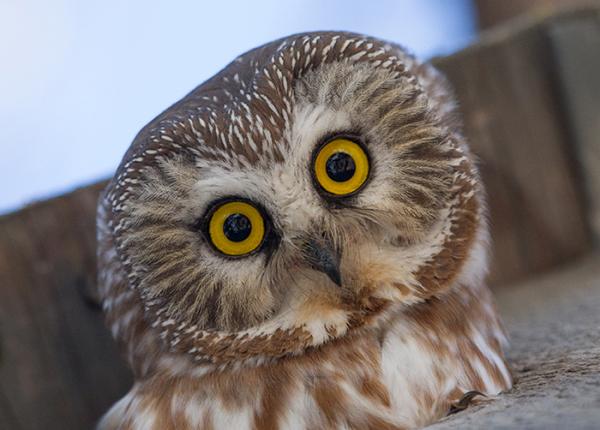You have probably been visited many times and haven’t even known. Owls are in every continent but Antarctica, from the deep forest and jungle, to the biggest cities, and from the highest mountains to the desert. But why don’t I see them?
The answer is simple: because their lives depend on not being seen! Owls hide, strike in silence, and then vanish.
I’ll post a series of pictures in the comments of different owls in different places. It obviously won’t take you too long to find them since you know there’s an owl in each picture.
But try to think of yourself as a fluffy little fieldmouse, and every tree, rock, or bush around you could have one of these owls hidden there. That is why prey animals have eyes to the sides of their heads. It allows them the best chance to catch that stealth attack coming.

In addition to just their coloration, owls also use their body posture to make themselves even more hidden.
From Owl Adaptations from the Owl Research Institute. If you’re new here and haven’t read the Owl-natomy posts, I’d recommend reading this article to catch you up on owl super powers.
Feather colors are not the only things that help camouflage owls. They have other tricks to conceal themselves. Many stand tall and pull their feathers in tightly, making the owls skinnier and harder to see. When trying to conceal themselves, owls raise the whitish feathers surrounding the bill. Tufted owls also raise their tufts, and round-headed owls lift their facial and ‘eyebrow’ feathers.
When an owl tries to hide itself by changing its shape, it is in concealment posture. In this posture, the owl’s rounded outline is broken up and is less likely to be seen.
Who is the most well hidden owl?


Very true! I’ve gone back and clarified the wording.
I had a lot of dragonflies in my yard this year that have been much fun to watch.
I have had a bunch this year too! I have a small pond though, so I hope it’s a regular occurrence every year.